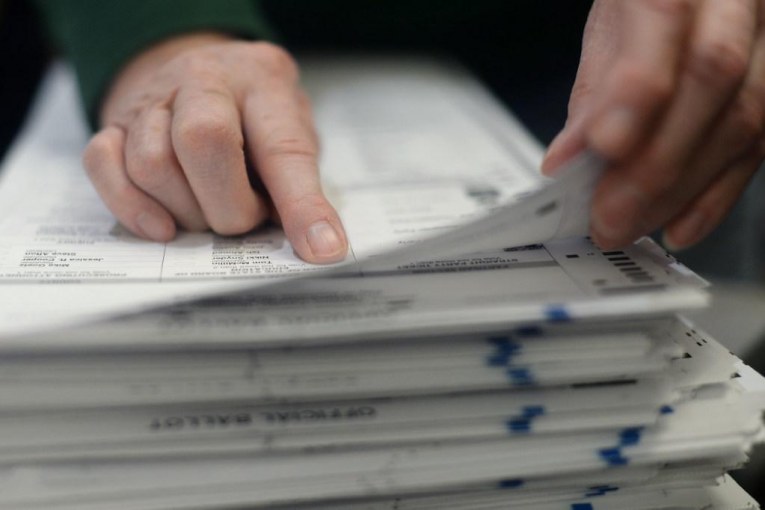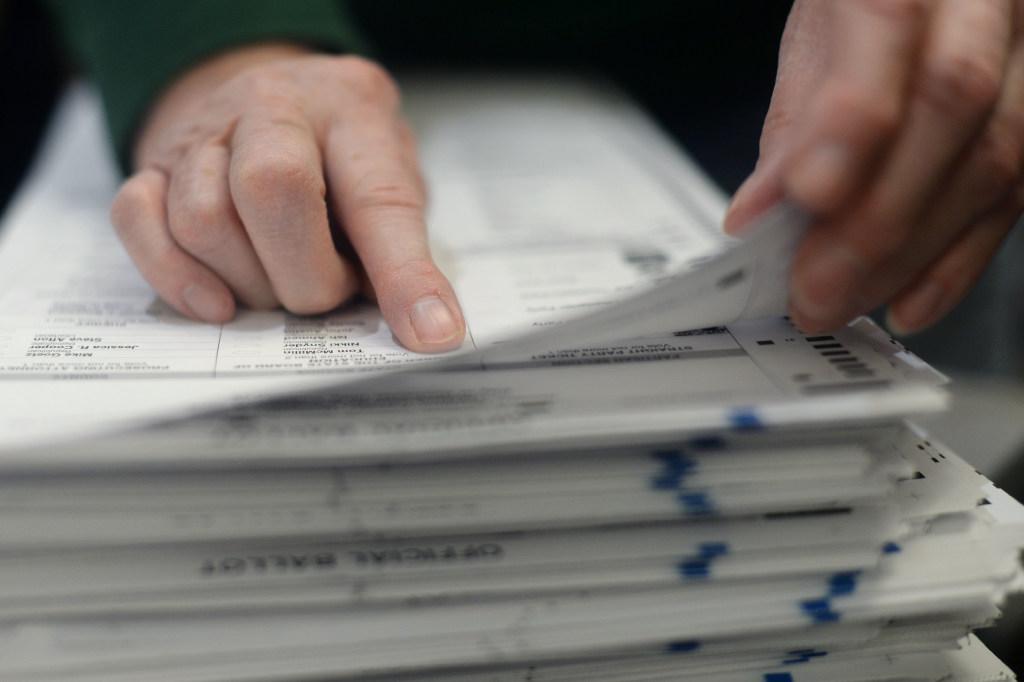

Last week several states went to the polls, but with reduced voting turnout—and five other states have postponed their elections until June. The reality is that, while the November election seems like a long way away, November is not very far off.
Increasingly, this is being viewed as a long-term threat. At best, a vaccine is seen as 12 to more likely 18 months away.
As Dr. Tom Frieden, who formerly headed the CDC, put it, “The Covid-19 pandemic will change our world forever. Until it is controlled, we will all need to change how we wash our hands, cover our coughs, greet others and how close we come to others. We will rethink the need for meetings and conferences. We will need broadband for all as a public utility like mail or water. We will need to support the vulnerable, even if only because their illness can risk our health.”
As the Atlantic put it: “From a public-health standard, the pandemic will not end for another 18 months. The only complete resolution—a vaccine—could be at least that far away.”
Until then, “we will be vulnerable to subsequent waves of the new coronavirus even if the current wave happens to ebb.”
This year happens to be an election year. While they could postpone state primary elections until June, they cannot postpone the November general election, which is mandated by the Constitution.
We are already likely to see huge changes. Gone will be large campaign rallies. Gone too will likely be the party conventions. We will see a lot more in the way of online and virtual
 campaigning.
campaigning.
But that only addresses the issue of the campaign—not the election itself.
While states understandably were caught flat-footed in the face of the threat, with eight months to prepare, the US government should not be.
There is a simple answer, one that frankly we should have started to implement many years ago—shift from in-person voting to mail-in ballots. We have seen several states including Oregon do it, and we have had our own all-mail ballot elections here in Yolo County for special elections without large issues.
Interestingly enough, while this column has been in preparation for several days now, the NY Times Editorial Board has issued a similar recommendation to go to all-mail elections.
They note: “It is almost certain that the 2020 election won’t look like any we’ve seen before.”
There will be unprecedented challenges to a nationwide vote during a time when there is a need to keep people physically separated.
The Times believes: “The most practical fix is to make voting by mail a clear and free option for every eligible voter in the country.”
They note the good news is that five states already have all or most of their voters vote by mail: Colorado, Hawaii, Oregon, Utah and Washington. Moreover, in 2016, nearly one-quarter of all voters cast ballots by mail.
The US election system is rather unique. We don’t actually have a national election. We have a national election day. Instead, voting occurs in local voting booths, tabulated by local counties, and cumulated by the states to determine electors.
That means that such changes would have to occur at the county level, but coordinated by state and federal government.
The Times points out that there are a number of advantages to voting by mail.
First is “turnout is significantly higher nearly everywhere voting by mail is used.”
That is not a huge surprise. It is easier to vote and drop a ballot in the mail than to drive to a polling place, wait in line, and vote.
Second, they note that “voters of all political persuasions use it and like it.”
Third and interestingly enough, because locally people like Bob Dunning have complained about the potential for fraud, “it’s safe and secure. Bar codes allow for ballot tracking and validation.”
They continue, saying that “states that use vote-by-mail have encountered essentially zero fraud: Oregon, the pioneer in this area, has sent out more than 100 million mail-in ballots since 2000, and has documented only about a dozen cases of proven fraud.”
There is a lot of work to do, however, to pull it off at a national level. They note: “In 2018, 31 states had fewer than 15 percent of their ballots cast by mail. Switching to all or nearly all voting by mail will require printing at least 70 million additional ballots.”
They point out: “These ballots will have to be ready to go out by Labor Day, less than six months from today. They must be postage-paid, so that no one has to pay a penny to vote, and there need to be enough machines and poll workers available to start counting ballots as soon as they come in. Signature-matching software can help ensure ballots are coming from the voters they were sent to, without introducing partisan bias into the process. And where signatures don’t match, voters should have an opportunity to fix the problem and cast a provisional ballot if necessary.”
This would not be free. It would cost an estimated $2 billion, according to a report released this week by the Brennan Center for Justice.
But while that sounds like a lot, given the $1 trillion stimulus plan Congress is considering, it seems like an easy solution to what could otherwise be a vexing problem.
And if it works, maybe this becomes the new norm—in a good way. It is long past time to modernize our voting. In fact, it was just a year ago we asked whether we should do this locally.
—David M. Greenwald reporting







Well, all VBM would put me out of a PT job I do twice every two years… but the hours are long, pay skimpy… so guess what I’d miss the most is the interaction with other folk, many of whom I’ve known for year, professionally, socially, or just regulars at my normally assigned polling place. But seriously…
Know well that many folk have expressed the desire for the ‘ritual’ component of going to the polls. So, such a shift will not be espoused by them… you are advocating something that they have chosen not to avail themselves of.
Other points:
All VBM negates same day registration, recent registrations. Be careful what you ask for… you just might get it. Your recommendation may well disenfranchise folk, who would otherwise vote… but that’s their problem, right?
All VBM means that in a primary, where they think they know how they will vote, but then ‘their candidate’ drops out at the last minute… no chance for a do-over by surrendering their ballot at the polls, and voting. 3 demo’s dropped out of presidential race within 72 hours before the CA primary!
All VBM means that if folk have recently moved, they have no guarantee of receiving a ballot at all… whereas we poll workers can issue them a conditional or provisional ballot… those folk would be disenfranchised… but that’s their problem, right? [we had one person come in, showing us her entire VBM packet, except there was a glitch… no ballot… we had her vote conditionally, and were able to note the circumstance]
All VBM could prevent some NPP’s, in a primary, to ‘cross-over’ and get a ballot from one of the three parties who allow that… we had at least a dozen of those March 3, just in our polling place… they’d have to make that decision much earlier to let the Co and USPS get a ballot to them. The polls can deal with that… ‘partial disenfranchisment? But that’s their problem, right?
Even absent the above, VBM’s have to be postmarked by the end of election day, altho’ I’ve heard rumors that might be loosened… I personally OPPOSE that.
Some (many) VBM’s have misplaced, or, if another member of the household, who picks up the mail, never got it to them. They would be disenfranchised… but that’s their problem, right?
Many folk have had their names disappear from the rolls… apparently not their fault… poll workers are trained to deal with that… provisional or conditional.
Your all VBM proposal does not address whether there should be drop-off points, where folk could wait until 8 P to cast their VBM votes, and still have them count! In our precinct, a whole lot of folk chose to drop off their VBM ballots at any polling place in the County (and with a recent law, anyplace in the State). Or should we all rely on USPS?
In short, I encourage VBM… probably half the elections I’ve voted since 1972 (missed one, when I was in a care facility, and spouse could not find my ballot) I have voted ‘absentee’, or VBM… the precinct I generally work at is at or above the %-age of VBM in the County.
I also support same-day registration (conditional ballot), and helping voters if there are “oopsies”… I strongly believe in enfranchisement!
Your piece seems to be aimed at issues other than enfranchisement. Think I have pointed out that you’re OK with disenfranchising folk, in practicality, if it isn’t by intent… I don’t doubt you support enfranchisement. But as written, the consequences are likely to be ‘disenfranchisement’.
In November, where everyone gets the same ballot, a couple of issues I outlined will not apply… all the others DO!
Be careful what you ask for/promote… you might just get it. And, on a practical level, disenfranchise a big bunch of folk.
But what do I know… only been voting for 48 years, and a trained poll worker for ~ 26 years… and I’m just trained as an engineer, not a PoliSci major… I only have a bachelor’s degree… you apparently have a Master’s..
Think.
Polls are not hygienic places – in Davis where I worked as an Inspector in the last three elections there were at least three to four shared touchpoints which are not feasible to clean between touch-ings and then for many a seal by licking envelope for conditional and provisional votes. Changing to more electronic system simply substitutes the touchpoints.
Sure, in-person polls can be determined to be “essential”, but I would consider the hygiene issue in addition to other factors.
… and for damn sure the VBM ballot envelopes need to have self-closing adhesive flaps!